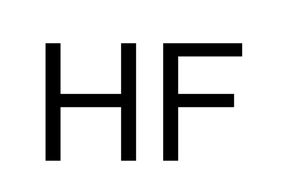Hydrofluoric Acid
Hydrofluoric Acid (81041)
49%, ULSI
General Information
- CAS Number
- 7664-39-3
- Grade
- ULSI
- Synonyms
- HF
- HF Acid
Physical Properties
- Boiling Point/Range
- 105 °C (1,013 hPa)
- Color
- Colorless
- Density
- 1.170 g/cm3 (20 °C)
- Flashpoint
- Not applicable
- Melting Point/Range
- -35 °C
- Odor
- Stinging
- Partition Coefficient
- No data available
- pH
- Acidic
- Physical Form
- Liquid
- Solubility in Water
- Completely miscible
- Vapor Pressure
- 101 hPa (50 °C) hectopascal
Safety Information
- Chemical Stability
- Stable under normal conditions.
- Corrosivity
- Corrosive to metals
- Ignition Temperature
- Not applicable
- Incompatible Materials
- Glass and silicate-containing materials are attacked, Gives off hydrogen by reaction with metals, Incompatible with bases
- Oxidizing
- The substance or mixture is not classified as oxidizing.
- Thermal Decomposition
- Fire or intense heat may cause violent rupture of packages.
International Transportation
- Chemical Class
- 8
- Harmonized System Code
- 28111100
- Packing Group
- II
- Sub Class 1
- 6.1
- UN Number
- 1790
General Information
- CAS Number
- 7664-39-3
- Grade
- ULSI
- Synonyms
- HF
- HF Acid
Physical Properties
- Boiling Point/Range
- 105 °C (1,013 hPa)
- Color
- Colorless
- Density
- 1.170 g/cm3 (20 °C)
- Flashpoint
- Not applicable
- Melting Point/Range
- -35 °C
- Odor
- Stinging
- Partition Coefficient
- No data available
- pH
- Acidic
- Physical Form
- Liquid
- Solubility in Water
- Completely miscible
- Vapor Pressure
- 101 hPa (50 °C) hectopascal
Safety Information
- Chemical Stability
- Stable under normal conditions.
- Corrosivity
- Corrosive to metals
- Ignition Temperature
- Not applicable
- Incompatible Materials
- Glass and silicate-containing materials are attacked, Gives off hydrogen by reaction with metals, Incompatible with bases
- Oxidizing
- The substance or mixture is not classified as oxidizing.
- Thermal Decomposition
- Fire or intense heat may cause violent rupture of packages.
International Transportation
- Chemical Class
- 8
- Harmonized System Code
- 28111100
- Packing Group
- II
- Sub Class 1
- 6.1
- UN Number
- 1790
- Grade : ULSI
- CAS Number : 7664-39-3
- Synonyms : HF|HF Acid
- Flashpoint : Not applicable
- Physical Form : Liquid
- Density : 1.170 g/cm3 (20 °C)
- Boiling Point/Range : 105 °C (1,013 hPa)
- Solubility in Water : Completely miscible
- Odor : Stinging
- pH : Acidic
- Color : Colorless
- Vapor Pressure : 101 hPa (50 °C) hectopascal
- Melting Point/Range : -35 °C
- Partition Coefficient : No data available
- Ignition Temperature : Not applicable
- Thermal Decomposition : Fire or intense heat may cause violent rupture of packages.
- Chemical Stability : Stable under normal conditions.
- Incompatible Materials : Glass and silicate-containing materials are attacked, Gives off hydrogen by reaction with metals, Incompatible with bases
- Corrosivity : Corrosive to metals
- Oxidizing : The substance or mixture is not classified as oxidizing.
- Chemical Class : 8
- Harmonized System Code : 28111100
- UN Number : 1790
- Packing Group : II
- Sub Class 1 : 6.1





